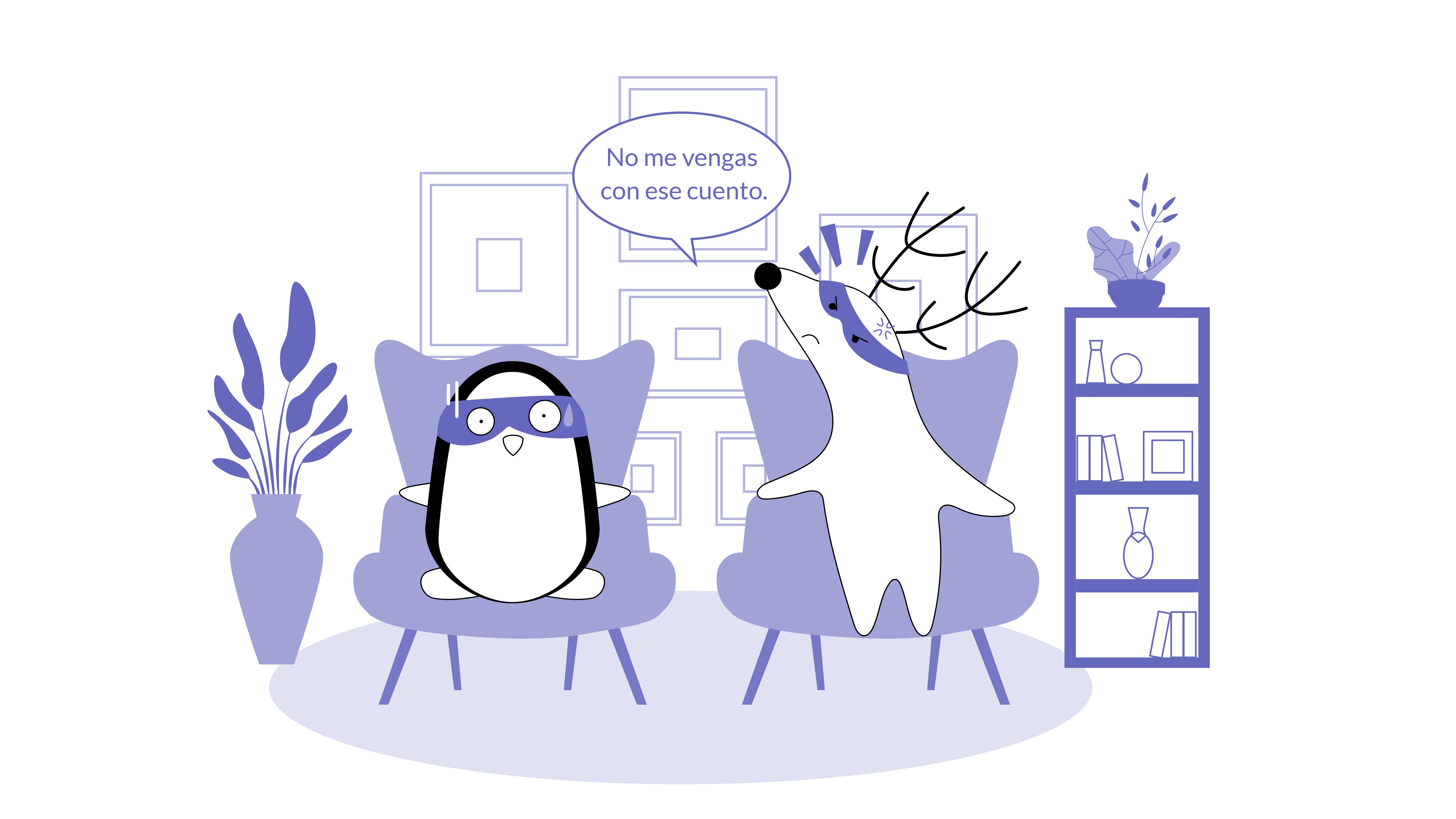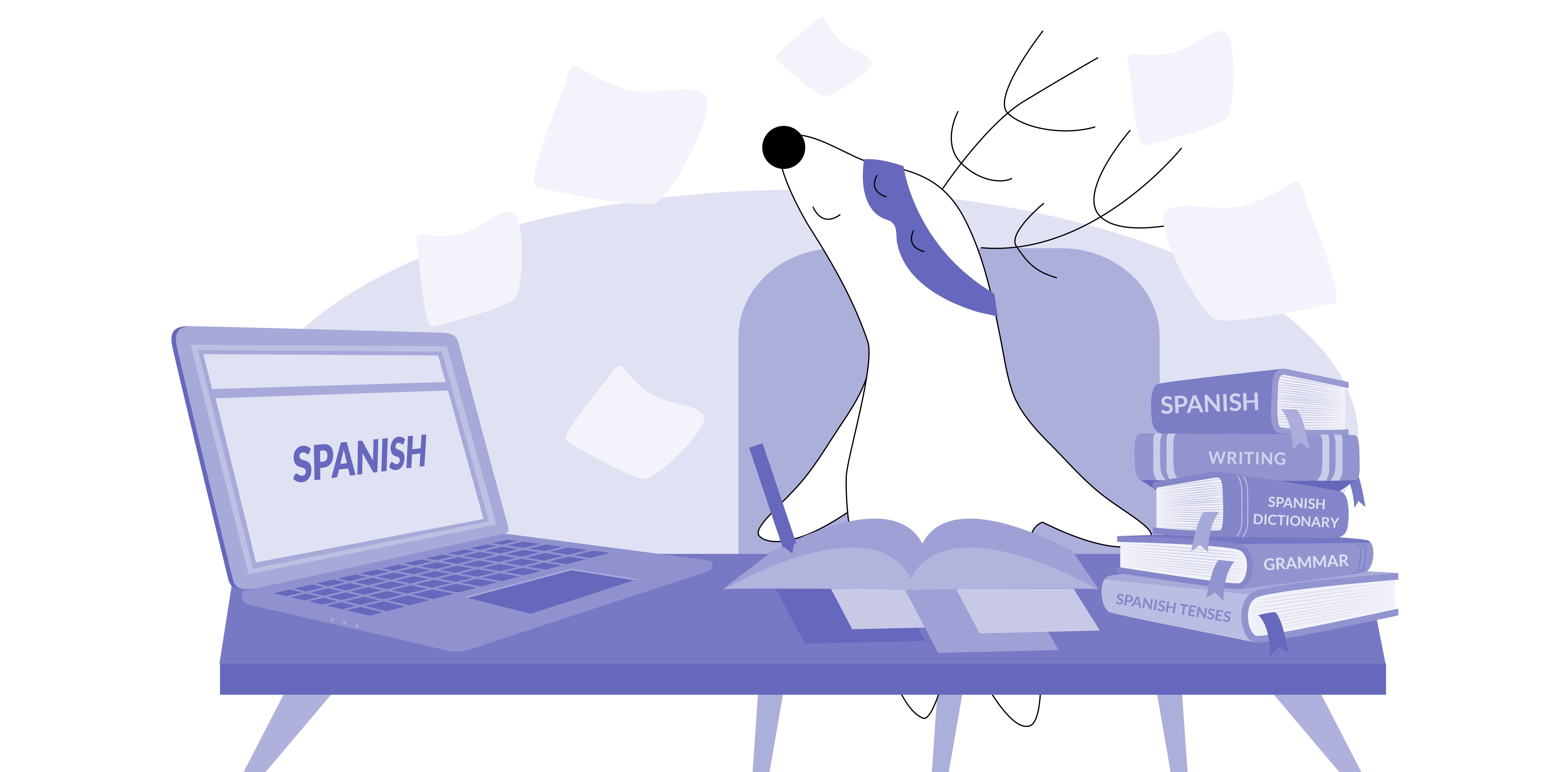
Latin America, a vast and multifaceted region, beckons explorers with its enchanting tapestry of culture, history, and diversity. From the sun-soaked streets of Mexico in the north to the rugged beauty of Argentina in the south, this captivating territory boasts an astonishing array of landscapes and people.
Yet, Latin America's allure extends far beyond its natural beauty and varied traditions. This region holds a prominent position in the global entertainment industry, particularly when it comes to television dramas. One genre that has left an indelible mark on the world of entertainment and captured hearts worldwide is the telenovela.
A telenovela — derived from the Spanish words tele (television) and novela (novel) — is a distinctive form of limited-run television serial drama or soap opera. Its roots can be traced back to the early days of Latin American television, and it has since evolved into a cultural phenomenon with a fervent global following.
This genre, born from the heart of Latin America, continues to be a captivating force, showcasing the region's storytelling talent and ability to resonate with audiences around the world. Let's explore together what telenovelas are and how they can help you learn Spanish.
Learn Spanish with Langster
What's a Telenovela?
The telenovela genre is a cultural phenomenon that transcends borders, captivating audiences worldwide with compelling storylines, colorful characters, and dramatic twists. Among the many popular Spanish telenovelas that have gained international acclaim are La Reina del Sur and Casa de las Flores.
La Reina del Sur, a thrilling Colombian telenovela, tells the story of a beautiful young woman who becomes the most powerful drug trafficker in southern Spain.
On the other hand, Casa de las Flores, a modern telenovela from Mexico, revolves around a wealthy Mexican family that owns a prestigious flower shop and cabaret, both named “La Casa de las Flores.”
These Spanish telenovelas serve as an immersive language learning tool for native and non-native Spanish speakers alike. Whether it's following the journey of a young woman rising to power in La Reina del Sur or navigating the complex family dynamics in Casa de las Flores, these telenovelas offer a captivating and enjoyable way to enhance one's Spanish language skills. We’ll go into depth about this below.
Telenovelas to Learn Spanish

Such compelling storytelling can be particularly beneficial for language learning. For instance, consider a Brazilian telenovela set in the fictional town of San Pedro del Oro — La patrona. You are not merely entertained by the unfolding drama; you're also immersed in a rich linguistic environment.
- Realistic linguistic settings. Hearing native speakers use the language in realistic scenarios enhances your listening comprehension and understanding of cultural nuances.
- Repetition and reinforcement. Soap operas tend to repeat information multiple times, aiding language acquisition through repetition and reinforcement. Moreover, the wide range of emotions portrayed allows you to learn expressions and idioms in context.
- Diversity in character representation. Characters in telenovelas often represent diverse social backgrounds, enabling you to pick up various dialects and colloquialisms.
A prime example of a Spanish telenovela that has gained international acclaim is La Reina del Flow (The Queen of Flow). This Colombian telenovela tells the story of Yeimy Montoya, a talented songwriter who seeks revenge on the man who wronged her. The narrative centers around this mysterious woman's journey, filled with music, love, and retribution.
Watching Spanish telenovelas can expose you to a wide range of vocabulary and phrases, from everyday colloquialisms to formal speech. Here are some examples:
| Example | Translation | Explanation |
|---|---|---|
| No me vengas con ese cuento. | Don't come to me with that story. | It is often used when someone doesn't believe what another person is saying or thinks they're making excuses. |
| Estoy en la gloria. | I'm in heaven. | This is a phrase used to express extreme happiness or satisfaction. |
| Eres el amor de mi vida. | You are the love of my life. | This romantic phrase is used with your partner. |
| Vamos a aclarar las cosas. | Let's clear things up. | It is often used when there's a misunderstanding or confusion that needs to be resolved. |
| Example | Translation | Explanation |
|---|---|---|
| No me vengas con ese cuento. | Don't come to me with that story. | It is often used when someone doesn't believe what another person is saying or thinks they're making excuses. |
| Estoy en la gloria. | I'm in heaven. | This is a phrase used to express extreme happiness or satisfaction. |
| Eres el amor de mi vida. | You are the love of my life. | This romantic phrase is used with your partner. |
| Vamos a aclarar las cosas. | Let's clear things up. | It is often used when there's a misunderstanding or confusion that needs to be resolved. |
Remember, the context in which these phrases are used in a telenovela can also help you understand their meaning and appropriate usage.
Top Telenovelas to Learn Spanish
Looking for telenovelas to start brushing up your Spanish? Here, we present you with our top picks:
Rebelde Way
An Argentinian telenovela that revolves around the lives of students at a prestigious private school. It's a great option for Spanish learners, as the language is clear and conversational — plus, it’s a lot of fun!
And if you'd like something more modern and based in the present day, make sure to check out Rebelde (2022) on Netflix — it's a sequel to the 2004 Mexican telenovela Rebelde, which is, in turn, a remake of the Argentine telenovela mentioned above.
El Clon
This Colombian telenovela is a love story with a touch of science fiction. The language is relatively easy to follow, and the plot is super engaging.
Yo Soy Betty, La Fea
Another Colombian telenovela that's both hilarious and heartwarming. It's a fantastic choice for learning Spanish, as it features everyday office conversations.
Amor en Custodia
This Argentinian telenovela is a remake of a popular Colombian telenovela. It revolves around the romantic relationships and dramas of the characters, set against the backdrop of a security company. It's a great way to learn both the Argentinian accent and the language of love.
Machos
This Chilean telenovela focuses on a family of men who share a common last name but have very different personalities and lifestyles. The show offers a mix of humor, romance, and drama while providing insights into Chilean Spanish.
Practical Tips on Using Spanish Novelas for Language Learning
Learning a new language can be challenging, but incorporating engaging tools like Spanish novelas can make the process more enjoyable and effective. Popular telenovelas have been designed with Latin American audiences in mind, so you'll learn a lot of vocabulary.
Here are some practical tips to optimize your language learning experience using Latin American telenovelas:
Choose a Novela that Interests You
Choosing a novela that aligns with your interests is a fundamental step in making your language learning journey more entertaining. When you're passionate about the story, characters, and cultural context of the novela, the process of acquiring a new language transforms from a task into an engaging experience.
Your enthusiasm not only motivates you to stay consistent with your language learning routine but also helps you retain and apply new vocabulary and cultural nuances more effectively. In essence, your chosen novela becomes a gateway to understanding the language in a more meaningful way.
Use Subtitles
Beginning your novela-watching journey with both Spanish audio and English subtitles is an excellent way to ease into the language.
As your understanding of different varieties of Spanish improves, transitioning to Spanish subtitles and eventually watching without any subtitles at all can be a highly effective strategy to enhance your listening comprehension and expand your vocabulary.
This gradual approach helps train your ear to the nuances of spoken Spanish and reinforces your ability to understand context, all while gradually reducing your reliance on translated text.
By immersing yourself in the language through this stepwise process, you make your learning experience not only less intimidating but more effective and enjoyable.
Take Notes

Keeping a notebook nearby while watching novelas serves as a practical and beneficial practice. It allows you to jot down new vocabulary and phrases that catch your attention. This not only helps you remember the words but also provides you with a personalized reference that you can revisit later.
Going a step further, writing sentences or short paragraphs using these newly acquired words and expressions will reinforce your understanding and retention. This active engagement with the language deepens your grasp on how these terms are used in context, making your language learning process more hands-on and impactful.
Your notebook will become a valuable resource for tracking your progress and honing your ability to use the language in real-life situations.
Pause and Repeat
Pausing the novela and replaying scenes as needed is a valuable technique for language learners. It allows you to thoroughly absorb the dialogue and better understand the context. Moreover, repeating lines aloud serves as a practical exercise to enhance your pronunciation and fluency.
By mimicking the actors’ intonation and rhythm, you not only practice proper articulation but also become more comfortable with the flow of the language. This hands-on approach is instrumental in fine-tuning your spoken Spanish, building your confidence when engaging in real conversations, and reinforcing the link between written and spoken words.
Discuss the Show
Engaging with friends or language exchange partners who are also watching the same novela can be an enriching experience for language learners. Discussing the plot, characters, and your favorite scenes in Spanish not only deepens your understanding of the show but also provides invaluable practice for honing conversational language skills.
It encourages you to express opinions, share insights, and use the language in a real, interactive context. These discussions contribute to your ability to engage in everyday conversations, helping you pick up colloquial phrases (even insults!) that might not be as evident in scripted dialogues.
Additionally, it fosters a sense of community among language learners and can make the process more enjoyable and motivating.
Consistency is Key
Incorporating novela-watching into your daily routine is a fundamental strategy for effective language acquisition. Consistent exposure to the language is vital for several reasons.
Firstly, it reinforces the concepts and vocabulary you've learned, so you won’t forget them. When you encounter words or phrases repeatedly in the context of the novela, they become ingrained in your memory.
Additionally, daily exposure helps to establish a rhythm for your language learning, making it a habit rather than a sporadic activity. This daily commitment signals to your brain that learning Spanish is a priority, which can boost motivation and progress.
Over time, it also conditions your ear to the sounds and cadence of the language, which is essential for improving listening comprehension. In sum, making novela-watching a daily ritual is the cornerstone of successful language acquisition.
Use Additional Learning Tools
Pairing your novela-watching with supplementary language learning resources is a comprehensive approach that can significantly enhance your language acquisition. Integrating various tools and strategies reinforces what you're learning from the novela in several ways.
- Grammar & textbooks. Using Spanish grammar books and textbooks in conjunction with watching novelas allows you to consolidate your understanding of grammatical rules and structures. When you encounter these rules in action during the novela, you can reference your grammar book for explanations and exercises that reinforce your knowledge.
- Language apps. Language learning apps, like Langster or Duolingo, offer interactive lessons, vocabulary drills, and exercises that complement your novela-watching experience. They provide a structured way to practice specific language skills, such as verb conjugations or sentence structure, while the novela immerses you in real-life conversation.
- Conversation classes. Participating in conversation classes or language exchange sessions with native speakers is invaluable for real-world application. It's an opportunity to practice what you've learned from the novela in an interactive, conversational context. It bridges the gap between passive understanding and active use of the language.
Enjoy the Process
Lastly, remember to enjoy the process. Learning a new language opens up a new world of opportunities and experiences, and the journey should be as enjoyable as the destination.
Telenovelas have a unique appeal that captivates audiences worldwide. They often revolve around dramatic, continuous, open-ended narratives, frequently involving a mysterious woman or an unexpected twist that keeps viewers on edge.
Comparison with Other Language Learning Methods
Learning a new language is a complex process that involves the acquisition of vocabulary, grammar rules, pronunciation, and cultural understanding. There are various methods to facilitate this learning process, each with its unique strengths and weaknesses. This section will provide a comprehensive comparison between soap opera-based learning and other popular language learning methods.
Traditional Classroom Learning

Traditional classroom learning has been the mainstay of language education for decades. It typically involves a teacher-led approach with a structured curriculum, textbooks, grammar exercises, and regular assessments.
While this method provides a systematic approach to language learning, it may not always capture the dynamics and fluidity of a living language. Classroom learning often focuses on formal language usage, which might differ significantly from everyday speech. Additionally, the pace of learning is usually set by the curriculum rather than the individual learner's needs or abilities.
In contrast, learning a language through telenovelas provides exposure to how language is used in real-life scenarios. Because novelas reflect everyday situations and conversations, they offer a more authentic and practical language experience. The narrative nature of soap operas also makes learning more engaging, as viewers become invested in the characters and storylines.
Language Learning Apps
Language learning apps like Duolingo, Babbel, and Rosetta Stone have gained popularity due to their convenience and interactive design. These apps use gamification techniques to make language learning fun and engaging. They allow learners to practice at their own pace, offer immediate feedback, and cover a wide range of languages.
However, while these apps are excellent for building vocabulary and practicing grammar, they may not provide sufficient context for language use. Without contextual information, learners may struggle to apply the language skills they've acquired in real-world situations. That does not happen with Langster, for example, which uses real-life stories as input for language learning.
Similarly, soap operas provide ample context for language use. By showcasing a variety of social situations and interactions, soap operas can help learners understand when and how to use different phrases, idioms, and conversation styles.
Language Exchange Programs
Language exchange programs involve pairing up with a native speaker of the target language, who wants to learn your native language. This method allows for practical conversation practice and cultural exchange.
While language exchanges offer valuable speaking practice and real-time feedback, they require a significant time commitment and depend on the availability and reliability of both partners.
Soap operas, meanwhile, are readily available and can be accessed at any time, providing flexibility for learners with busy schedules. In addition, soap operas offer exposure to a broader range of vocabulary, accents, and speaking styles than might be encountered in a one-on-one exchange.
Immersion Programs
Immersion programs, where learners live in a country where the target language is spoken, are often considered the gold standard of language learning. They provide constant exposure to the language and direct interaction with native speakers.
However, immersion programs can be costly and require a significant time commitment. They may also be stressful for beginners, who might feel overwhelmed by the constant need to communicate in a new language.
Soap operas offer a form of 'virtual immersion' that can be experienced from the comfort of your own home. They provide exposure to the culture and language of the target country with the added advantage of being able to pause, rewind, or rewatch scenes for better understanding.
The Bottom Line

In conclusion, soap operas offer more than just entertainment. They provide a dynamic platform for language learning that can expose you to a broad range of vocabulary, phrases, and conversational styles. So, the next time you tune into the captivating saga of a mysterious woman in San Pedro del Oro, remember — you're not just watching a show; you're embarking on a linguistic adventure.
Spanish novelas are a fun and effective way to improve your language skills. Combining entertaining telenovelas with an effective language app like Langster, you'll be well on your way to mastering Spanish while immersing yourself in captivating stories and characters.
Learn Spanish with Langster









